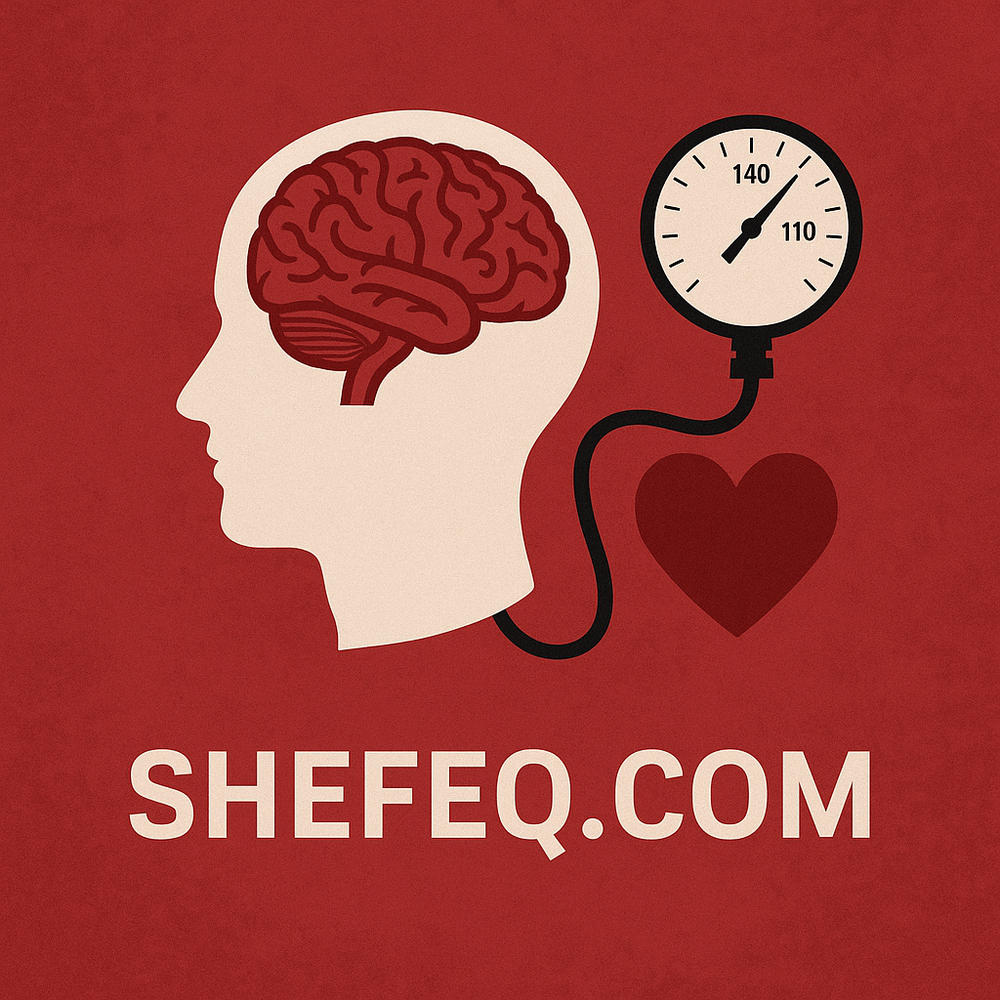I. INTRODUCTION: Silent Killer, Silent Tears
A calm-looking person... someone withdrawn, with a storm raging inside... Sometimes we remain silent, but our body speaks. Sometimes we say nothing, but pressure rises in our veins. There’s a condition that alters the rhythm of life, yet we often notice it too late — hypertension. Medicine calls it the “silent killer.” But sometimes, this killer speaks through the emotions we fail to express.
In this article, we will focus not only on the physical causes of hypertension but also on its psychological, emotional, and sociological aspects, its impact on human life, and the bridge between body and soul.
II. WHAT IS HYPERTENSION? – PRESSURE IS MORE THAN JUST NUMBERS
Hypertension is when blood pressure rises above normal. A normal reading is 120/80 mmHg. Hypertension usually begins when readings reach 140/90 and above.
But it’s not just about numbers. What lies behind them?
-
Lifestyle: Sedentary habits, poor diet, smoking, alcohol
-
Kidney and endocrine disorders
-
Stress and emotional tension — this final factor is at the center of our discussion.
III. WHEN EMOTIONS RISE, WHY DOES PRESSURE RISE?
1. The link between stress and cortisol
During chronic stress, the body produces hormones like cortisol and adrenaline. These are essential for short-term survival, but when released over a long period, they:
-
increase heart rate,
-
narrow the blood vessels,
-
and raise blood pressure.
There is a biochemical bridge between stress and pressure.
2. The physical outcome of suppressed emotions
Someone who constantly holds in their emotions will eventually express them through:
-
headaches,
-
chest tightness,
-
and ultimately, hypertension.
3. Unexpressed anger – a blow to the heart
Anger that is not released accumulates. This stimulates the sympathetic nervous system — laying the groundwork for hypertension.
IV. HEALTHY THOUGHTS VS. HEALTHY PRESSURE
1. What we think – is what we feel
-
When we hear bad news, our blood pressure rises.
-
Even a pleasant surprise can temporarily spike it — a form of “positive hypertension.”
Chronic negative thoughts, fear of the future, unresolved trauma — all hinder the peaceful flow of blood.
2. "Everything will be fine"... but your blood is boiling inside
When was the last time someone told you to “calm down”? Did you really calm down, or did a volcano erupt inside?
Managing your thoughts and recognizing your emotions helps control blood pressure.
V. REAL STORIES OF LIVING WITH HYPERTENSION
1. Aynur – silent pain
A 45-year-old teacher. Quiet in class, devoted at home. But everything was building up inside. Over time, it became clear: every time she worried — her pressure rose. Every time she cried — it dropped. Because her body spoke through tears.
2. Kamran – a pressured life behind a smiling mask
He posts cheerful videos on social media, but at night he relies on blood pressure medication. He smiled, but his body was crying.
Hypertension isn’t just a health issue — it’s a physical reaction of an emotional society.
VI. SOCIAL ISOLATION AND LONELINESS – THE HIDDEN PARTNERS OF HYPERTENSION
-
People who are socially isolated have a 40% higher risk of developing hypertension.
-
Loneliness keeps the body in a constant “fear mode.”
-
Love, attention, and touch — naturally lower blood pressure.
VII. COPING WITH HYPERTENSION – THE COOPERATION BETWEEN BODY AND SOUL
1. Psychotherapy and emotional release
-
Talking lowers blood pressure.
-
People with emotional support need fewer medications.
2. Meditation, breathing exercises, and yoga
-
Just 10 minutes of daily calm breathing — is a natural medicine for blood pressure.
3. A loving and trusting environment
-
Family support and loving relationships stimulate the release of “feel-good hormones” that lower pressure.
VIII. CONCLUSION: GIVING VOICE TO THE SILENT KILLER
Hypertension is not just the cry of the body — it’s the scream of unspoken emotions. When pressure rises, perhaps what’s really falling is sensitivity, calm, attention, and inner peace.
Sometimes, pressure isn’t from the body — but from the storm inside the heart.
That’s why treatment should include not only medicine, but also:
-
Listening to yourself,
-
Recognizing emotions,
-
Restoring inner peace.
QUESTION TO THE READER
Do you control your pressure, or does it control you?
Or do your vessels finally relax when you listen to your emotions?

